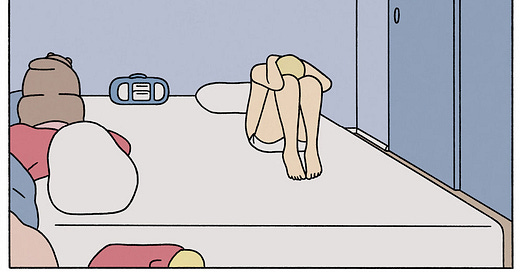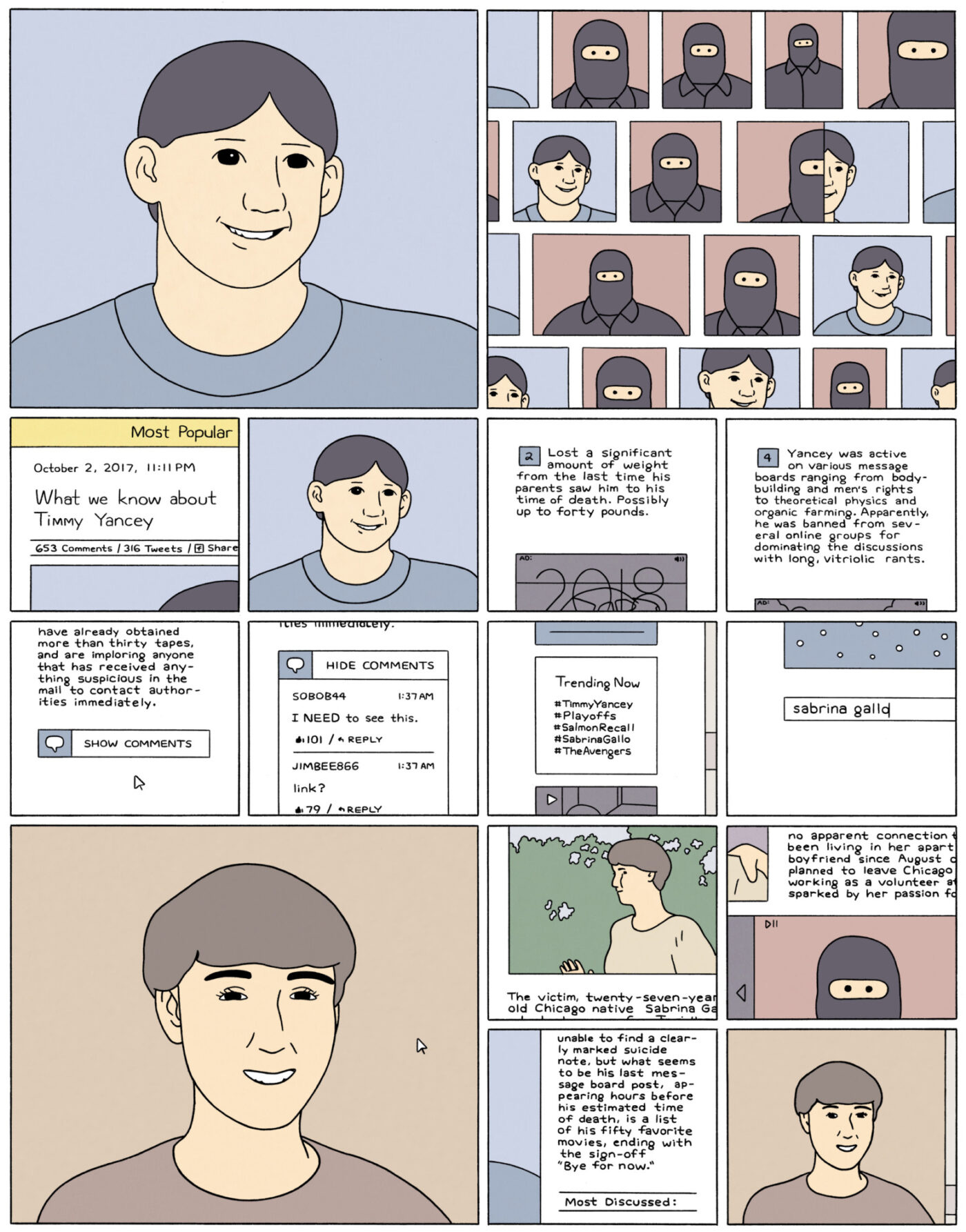Everything is bad, yeah.
Bad in the same ways, bad in routine ways, bad in ways that remind us it’s been bad for a while and the worst part is just watching it happen, watching the same preventable tragedies play out day after day, a new list of names lost, we’re supposed to keep them straight, to remember and honor each life as they are added to tweet threads with sparse details: their age, their favorite color, the last time they saw their family. We are supposed to ignore the shooter, not give them visibility, but it never happens, they are always there too, with their own sparse details: hated women, racist rhetoric posted publicly, lots of guns in the closet purchased legally.
Trying to make sense of the senseless, to process the unthinkable as it’s happening, the news cycle is already moving on, you haven’t stopped crying about the other recent tragedies, don’t know how to hold all this, your mind like a vase that is leaking, trying to find some way to contain all of this but it slips out, into everything, onto every surface.
There are origins for the mechanization of this terror: the violence this country was built on, the economic degradation, the lack of mental health support, how easy it is to purchase weapons, how Republicans want to kill us all and Democrats have watched passively as it happens, the radicalization of predominantly white and young men that, perhaps, with community support could have been different.
After Columbine: the introduction of school shooting drills and an NRA Convention. And now: another NRA Convention, some elected officials put thoughts and prayers on their social media feeds. School shooting drills have been going on for so long that many school shooters likely went through them. We are told more police, more guns, will keep kids safe, though it does not, makes it less safe, especially for kids of color. We watch as police budgets inflate, arming them more and more militaristically, and wonder how they are any different than grown up school shooters.
A pandemic still ravaging the world, a pandemic that perhaps kept, ironically, kids safer in some sense, if only because they were in their homes, exposed only to the normal brunt of being alive here, not the now routine presence of violence in spaces that are meant for worship, for learning, for sustenance. If these kids grow up, make it out of school, what world awaits them?
We cannot make sense of these events, nor are we meant to process so much loss and be expected to simply keep our heads down and keep moving, show up to work, show up for others – and yet that is exactly what we are asked to do, what we have to do. The grief and mourning tucked away with all the other headlines that feel more and more common, and I wonder where the wailers are, why we aren’t publicly processing this. And remember we don’t have time to mourn, that this happens so often it isn’t even a question, we will be out of sorts and crying in the privacy of our cars or behind a closed door until the next one happens, which we all know will be soon, any second now, maybe it happened in the time it took to read this sentence.
Public spaces are eroding or instilled with the terror of potential violence. Where do people process such loss, such trauma? How could we be meant to process this much trauma, this much loss, all of the time? What evolutionary gene would suddenly kick in, what ancestral trait would lay dormant to help us for this?
The internet is hailed, sometimes, as a great connector but mostly it has allowed rampant abuse to seamlessly slip in and off line, and for those of us watching, to be reminded of this 24/7, whether we want to or not. Even if we put our phones down we know the feeds are still there, roiling with all the new details, the new horrors, the analysis that aims to deepen understanding but seems to make real lives into abstract, just numbers to add to the tally of loss.
And the processing that does occur in public, primarily in networked spaces, takes on a grim pallor, not just because of the grief and the repetition and the heaviness in knowing people will move on from this tragedy when the next one happens. But because the processing is it’s own sort of violence, as people try to make sense of what happened or point in directions that obfuscate the cause: don’t blame guns blame people, don’t blame politicians blame lone wolves. Even worse, knowing these very networked spaces are what amplify the most hateful ideology spearheading this violence, that scrolling right alongside the attempts to remember and honor the lives lost there will be those who deny it ever happened, those who are emboldened by it.
—
I think about the graphic novel Sabrina by Nick Drnaso a lot. I’ve probably written about it before in this very newsletter and just can’t remember. It’s about a woman, Sabrina, who goes missing. We later learn that Sabrina has been murdered, a video of this exists, and it’s sent to news agencies, rapidly spreading across the internet.
Sabrina’s sister and friends must deal with the aftermath: the loss of Sabrina and the conspiracy theories that form around her death. The loss of life does not end her story. Now that it’s politically motivated, people chime in about what it means, or worse, if it happened at all. The time of mourning for Sabrina is clouded by the utter ludicrousness of America’s deeply broken media cycle, the unique horrors of technology to capture these acts and get them circulated, the conspiratorial thinking and paranoia that arises.
More than most things I’ve read about what it means to be alive in America, this book captures how horrifying the space after horror becomes, how paranoia and grief mix to create a atmosphere that is not simply not conducive to grieving, but actively antagonistic, an aftermath that demands those who have just lost someone become a public speaker, defend the truth, a truth that is brutal and terrible and cold.
And people who invent why it really happened, social media amplifying the worst of these, the worst ouroboros, radicalizing young white men and then valorizing their violence, destabilizing the very reality around it. Not even murder can be spared from disinformation and doubt. We sit alongside both the unending, unrelenting trauma and loss, and are inundated with messaging that questions whether the loss even happens, or if it did, why it shouldn’t be made “political.” We watch as people who don’t give a shit about what actually happens besides being elected next term decide the best route to inaction, how to phrase it best, how to express vague regret without threatening funding from the companies that create the weapons in the first place. We read more tweets from the most powerful people in the world, Joe Biden sending out thoughts and prayers and this can’t happen anymore.
So to return to the title question, how do you cope, the answer is: I don’t know. I looked up tips for how to cope with grief but none of the suggested topics seemed to encompass the overwhelming dread of this world. Looking between “divorce” and “death of a pet” to find some broad definition yielded nothing especially helpful.
There are still good things, good people, good news, and sometimes to tap into that feels like a denial of reality. But it can’t be, there have to be ways to keep moving, to try and make change, to nourish yourself and others in whatever way you can. That feels trite, maybe, but perhaps everything would seem trite because how are you supposed to map out a listicle or path to dealing with the unthinkable, the senseless.
A controllable thing: to try and process offline. Even if you are doing the very best of your ability to do good things with a broken platform you will necessarily be inundated with constant information about tragedy, and sometimes the speed at which the tragedies happen and people processing in real time makes it feel as though we cannot stop looking, that looking is the best defense. I want to believe that one can be intentional about information intake without that equating to looking away, to putting your head in the sand, and instead to being a way to hold and process grief without the thrumming backdrop of hot takes about a very real, very horrifying reality. That’s my one tip for coping today, by all means chime in with your own.
—
Things I’m reading / listening / giving to:
Here’s a picture of my dog:
Sending you all so much love, thank you for reading, I hope something beautiful awaits you today.
xo
shelby (and clem)





